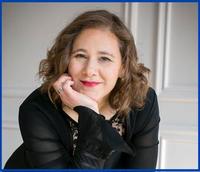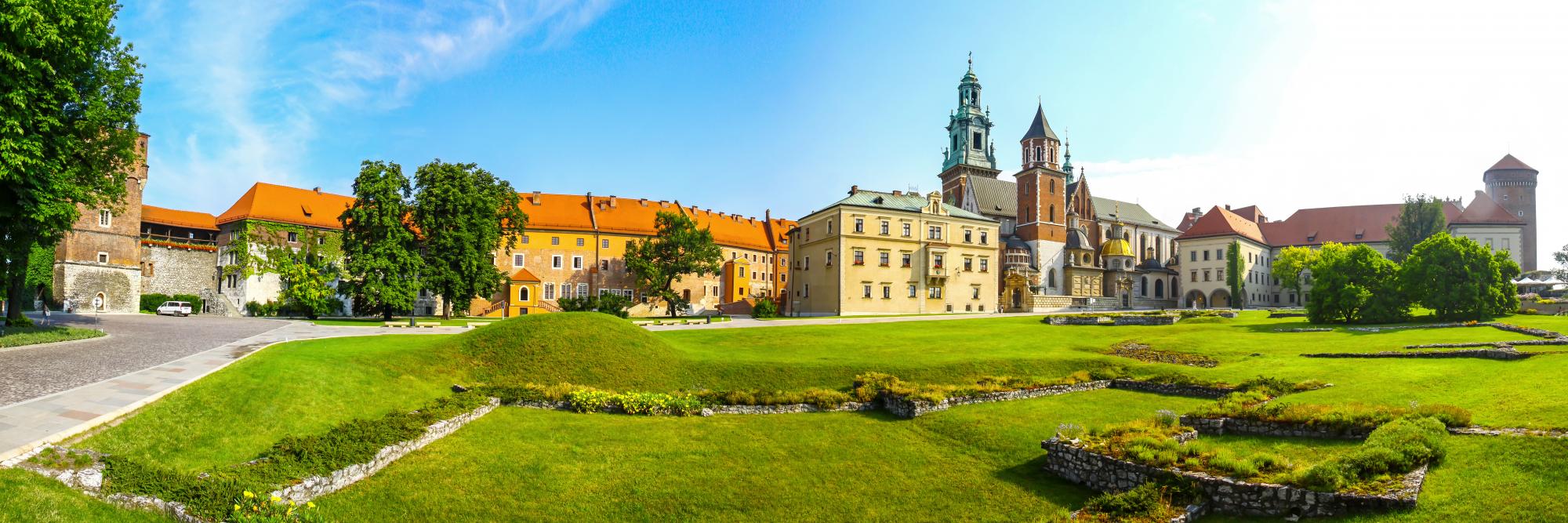Leonie Müller is a 40-something-year-old mother of four living in Krakow, Poland. She grew up in South Africa but has spent most of her life living as an expat. Read her advice on family life in Krakow below, or follow her adventures on her blog, Alive to the Extraordinary.
About Leonie
Q: Where are you originally from?
A: South Africa.
Q: Where are you currently living?
A: Krakow, Poland.
Q: When did you move here?
A: February 2015.
Q: Is this your first expat experience?
A: No, but it is the first time I have been involved in any expat group.
Q: Did you move here alone or with a spouse/family?
A: We moved here as a family of six.
Q: Why did you move; what do you do?
A: My husband had been commuting from Germany for 10 years, and initially, it was once a month. But eventually, it became weekly, and we decided that it was becoming a strain for all of us.
Living in Krakow
Q: What do you enjoy most about Krakow?
A: Krakow is a city that does not feel like a metropolis. The old city charm, combined with the unique city layout and the Wisla River, make it aesthetically pleasing. But I think what I enjoy most is the way that Polish culture, though evolving with time, is still evident in the friendliness of the people.
The quality of life is high regarding access to public transport, value for money, cultural opportunities, green spaces and more. The only downside is the poor air quality in the winter months.
Q: Any negative experiences? What do you miss most about home?
A: Home is a tricky question, as I have been in two countries for significant amounts of time. Personally, I think I miss understanding signs and whole conversations. And no, no negative experiences.
Q: What are the biggest adjustments you had to make when settling into expat life in Poland? Did you experience any particular elements of culture shock?
A: Learning to navigate purely by public transport and not relying on a car were pleasant adjustments. I think the main part of culture shock has to do with the level of customer service, which is pretty erratic here. It can be beyond amazing and inexplicably awful, and everything in between.
Q: What’s the cost of living compared to home? Is there anything particularly expensive or particularly cheap in Poland?
A: The cost of living is low compared to Germany, where we were living before. One of the cheapest aspects of life here is medical and dental care! There is actually a lot of “denture” tourism from Austria and Germany.
Q: How would you rate the public transport in Krakow?
A: Public transport is really good, with trams and buses going pretty much to every corner of the city. I can’t recall a particularly memorable experience right now.
Q: How would you rate the healthcare in Krakow? Have you had any particularly good/bad experiences with regard to doctors and hospitals? Are there any hospitals you would recommend?
A: There is good access to healthcare, though it sometimes seems tricky to set up appointments for urgent things. The worst experience by far was a Gynaecologist who was overly excited about speaking English and kept me there for much too long as she told me about her boyfriend and travels.
My best experience was the considerate care of my 14-year-old at the children’s hospital.
Q: What are the biggest safety issues facing expats living in Krakow? Are there any areas expats should avoid?
A: This is one of the safest cities to live in, and I do not know of areas to avoid, though there are some problems with the two main football teams when they compete against each other. There is a lot of stag night tourism here, and men tend to be exploited in these situations at ‘Gentlemen’s Clubs’.
Q: How do you rate the standard of housing in Krakow? What different options are available for expats?
A: There are so many apartments to buy and rent. Houses as well. And for the most part, everything is renovated and functional. There are estate agents who specialise in expats.
Q: Any areas or suburbs you’d recommend for expats to live in?
A: Traffic can be brutal at rush hour. So I would always choose an area with good public transport and closer to work/school.
Meeting people and making friends
Q: How tolerant are the locals of foreigners? Is there obvious discrimination against any particular group? Have you ever experienced discrimination in Krakow?
A: Poland is not known to be particularly tolerant. However, the younger generation doesn’t fit this stereotype. I have not experienced discrimination, but speaking some of the local language opens hearts and doors.
Q: Was meeting people and making friends easy? How did you go about meeting new people?
A: Because my children attend an international school, it was easy to meet other expats or locals with similar interests. There are also social clubs specifically set up for integrating expats.
Q: Have you made friends with locals, or do you mix mainly with other expats? What advice would you give to new expats looking to make friends with the locals?
A: Our friends are a mixture of both. Going to social events where there might be a mixture and making an effort to engage in conversation is generally all that is required to meet people.
Working in Krakow
Q: What is the economic climate in Krakow like? Do you have any tips for expats looking to find a job? Which resources did you find most useful?
A: There are a good number of international companies in Krakow, and they advertise posts widely.
Q: How does the work culture differ from home? Do you have any tips for expats doing business in Poland? Have you had any particularly difficult experiences adapting to local business culture?
A: There is a huge emphasis on networking and social contacts here. The more people you know, the easier it is to get ahead in business.
Family and children
Q: How has your spouse or partner adjusted to your new home? Do you think there are any specific challenges for a trailing spouse?
A: I am the trailing spouse. I think, in many ways, it is easier for parents who are engaged in school life to make friends. I think the picture would be different if there weren’t children.
Q: Did your children settle in easily? What were their biggest challenges during the move?
A: We spent a year and a half in a village where the majority of children didn’t speak English, and their own language skills were not well developed. That was hard for them.
Once we moved to the city, and they went to the international school, they settled very well and now have a mix of local and expat friends.
Q: What are your favourite family attractions and activities in Krakow?
A: There is a lot to see and do. I think that, as a family, we really enjoy the variety of restaurants, green spaces, and outdoor activities. Combining the two at a food truck court that we cycle to is our favourite weekend activity.
Q: What are the schools like? Any particular suggestions?
A: Unless you plan to be here for a long time and are prepared to immerse yourself in the language, the three international schools are your best options.
They all offer tuition for all age groups and have their own merits. We really love our school, Embassy International School, because of the small class sizes, pioneering spirit and value-based leadership.
Final thoughts
Q: Is there any advice you would like to offer new expat arrivals to Poland?
A: If you want to make the most of your time here, find a group quickly. Be it through language lessons, gym membership, or one of the many Facebook meet-up groups. These people, usually a mix of local and foreign, will help your transition to Poland and Krakow by helping you interpret confusing experiences.



